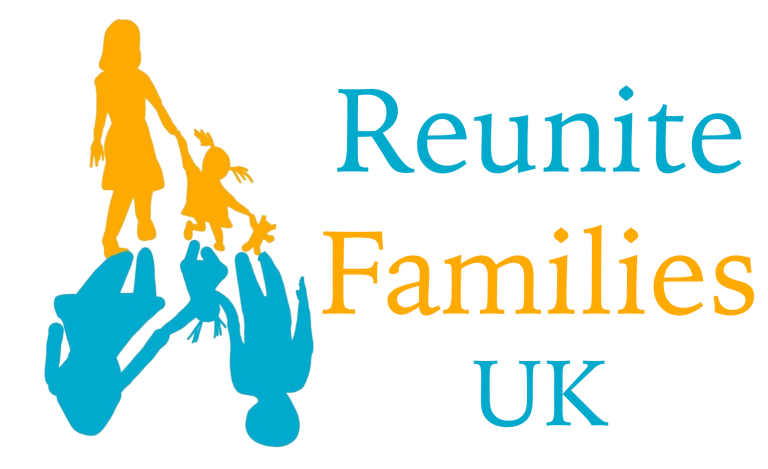We begin this week with a flurry of stories relating to Ukraine.
‘Home Office ‘mistakes and delays’ mean girl, 4, must stay trapped in Ukraine’ (Guardian).
‘A four-year-old girl remains stranded in a block of flats on the Ukrainian frontline four months after attempts began to bring her to the UK, a delay campaigners have blamed on a series of government “blunders”.’
‘Efforts to rescue Alika Zubets from the city of Kharkiv began on 21 March when her UK sponsor applied for a visa under the Homes for Ukraine scheme and expected her to reach north Staffordshire by mid-April at the latest. Instead, she remains one of the few children left in her Kharkiv neighbourhood, with no schools or nurseries open and the constant threat of shelling from Russian forces nearby.’
The story goes on to report a series of apparent blunders, including a visa being granted to Alika’s grandmother but not to her, which took so long that their visas for Poland (where they had fled to) expired. Vigil for Visas has been supporting this and other families trapped in the bureaucratic quagmire – their Twitter feed is worth a follow.
The story is also covered by ITV.
‘Mother and baby narrowly avoid missile strike while waiting for UK visa in Ukraine’ (i news).
‘Valentina and her family was caught in Russia’s latest attack on innocent civilians, in Vinnytsia. They have been waiting for a visa for her seven-month-old daughter for four months’.
Needless to say, delays cost lives.
‘My 12-year-old was sent a work permit – has the world gone mad?’: a Kherson mother’s UK diary (Guardian)
‘When Russian tanks rolled into the Ukrainian city of Kherson, Olha fled with her children and pet cat, Venera. The family travelled across the Polish border, through Germany and Sweden, before arriving in London. Now she faces yet another challenge: bureaucracy.’
It’s always interesting to hear these stories as getting to safety is in many cases only the beginning. We hope things get better for this family very soon.
On a lighter note, a group of campaigners have shared what looks like a lovely free e-book highlighting Ukrainian culture (‘Interesting Ukraine’) on the Refugees Welcome – UK Facebook group. The book can also be downloaded directly here. Because after all, culture is something that makes life living, and even in the darkest times there is still hope.
One of the authors writes :
our small family publishing house is grateful to all those caring people from Germany, Poland, Great Britain, Romania, Canada, the USA and many, many other countries of the world who found an opportunity to shelter Ukrainians which were forced to leave their homes.
We are sure that many of these kind people would like to know more about those they help, would like to learn about Ukraine, its history and traditions.
Therefore, since the beginning of the war, my husband and I have been distributing our books about Ukraine for free.
Please download the book Interesting Ukraine and our other publications here: https://bit.ly/3hokrET

‘Rwanda ‘not safe enough’ for asylum deal and Priti Patel must reconsider, parliamentary committee says’ (Independent)
And from Victoire Ingabie Umuhoza, writing for al-Jazeera: ‘Despite what the British and Rwandan governments say, my country is currently in no position to absorb tens of thousands of refugees.’
‘Twenty-eight years after Rwanda’s civil war and the genocide against the Tutsi, Rwandans are still recovering from the trauma and losses that have affected each and every citizen. Genuine reconciliation is proving elusive, and the country is still trying to heal. And the persisting trauma of the civil war and genocide is not the only challenge facing Rwanda.’
Meanwhile, the ongoing Conservative Party leadership race seems to be, on immigration at least, a race to satisfy the basest, most gutter instincts : ‘Rishi Sunak and Liz Truss accused of cruelty over Rwanda-style deal promises’ (Guardian).
On this issue I feel that the Conservatives will find themselves increasingly out of step with the UK public – indeed recent surveys (such as this one), as well as the compassionate and generous response to the war in Ukraine, suggest that the public is increasingly aware of and positive towards the impact of immigration on society as a whole (as one might expect in an era which is still increasingly global and interdependent) and the anti-immigration voices will likely find themselves increasingly off-key compared to the public mood.
‘Grandmother hypothesis revisited: the women who fill our children’s most human needs’ (Sydney Morning Herald).
‘We probably don’t, as a species, spend enough time looking at the brains of grandmothers. Rather than being recognised as the matriarchs and cornerstones of family units, as they are in some cultures, nannas are too often derided as cheek-pinching, bosom-heaving, lavender-smelling, force-feeding doddery old bats who while away the hours knitting in armchairs while sporting large, comfortable underpants (not that there’s anything wrong with that).’
‘But scientists have now established, the support – and good health – of grandmothers are crucial to the long lives, and health, of their kids, and grandkids.’
The article concerns a piece entitled ‘The neural correlates of grandmaternal caregiving’ written for the Proceedings of Royal Society B, which (to my primate brain) appears to relate to the evolutionary basis of the role played by grandmothers in families – a role which, in modern Western societies at least, is often neglected and undervalued – maybe to an extent even greater than other traditionally female roles (which start off undervalued anyway).
As well as having very strict rules around spouse and partner visas, the UK has even stricter rules regarding adult dependant relatives – traditionally grandparents. I’ve written about this before, and this area is often neglected in my view by campaigner, but in the context of keeping families together in a way that’s truly global and intercultural, it is worthwhile broadening one’s horizons as to what family can truly mean. Your partner in a nuclear family is important, but so are other things, and families come in all shapes and sizes.
With that in mind, the ‘elderly dependants’ tag on the BritCits blog is well worth a browse.

And this news is happier at least : ‘GP who faced splitting up his frail parents told both can now stay permanently with him in the UK’ (i news). This highlights the power of the media when used well.
Good news for one family, but for others, the fight goes on – ‘Home Office says terminally ill mother should not join children in the UK because ‘sacrifices have to be made’’ (i news). ‘Neelam Rahi’s children – a Covid mass vaccination centre manager and LSE professor – are taking the Government to court over its refusal to give their 82-year-old mother an adult dependent relative visa…’
‘This is Brexit’. An important and sadly humorous YouTube piece from Led by Donkeys, which really speaks for itself.
Context : ‘Channel travel chaos continues with ‘holiday hell’ at Eurotunnel’ (Guardian) and numerous other pieces in the news.
‘New law significantly expands possibilities for claiming British citizenship through a grandparent’ (Free Movement)
This piece, on the new section 4L in the Immigration Rules, will of course be extremely useful for those lucky enough to be in this position, and as with all posts on Free Movement blog, is worth reading.
‘Pig butchering’. A piece on the community weblog Metafilter on what looks like a particularly unpleasant new scam – combining elements of people trafficking, romance scamming and cryptocurrency fraud all in one horrible package. Look after yourselves.
From Krebs on Security : ‘”U.S. state and federal investigators are being inundated with reports from people who’ve lost hundreds of thousands or millions of dollars in connection with a complex investment scam known as ‘pig butchering.’ … As documented in a series of investigative reports published over the past year across Asia, the people creating these phony dating profiles are largely men and women from China and neighboring countries who have been kidnapped and trafficked to places like Cambodia, where they are forced to scam complete strangers over the Internet — day after day.”‘
‘Here’s why a border-free world would be better than hostile immigration policies’. Luke de Noronha and Gracie Mae Bradley write in the Guardian :
‘Abolition is a concept we take from movements committed to prison and police abolition. For decades, activists have grappled with some simple truths. Policing and prisons do a lot to punish the poor, little to prevent or reduce violence, and enact much social harm in and of themselves, all at great expense. So they ask: what if rather than locking people up we transformed the original conditions to which policing and prisons are a response? What if people were given the resources they need to live flourishing lives, rather than responding to harm with more harm?’
‘We want to apply this framework to borders. What we call border abolition is most concerned with expanding the freedom to move and to stay. This does not mean advocating for free movement in the world as it is now configured, but rather for transformation of the conditions to which borders are a response. Abolition is concerned with presence: the presence of life-sustaining goods, services and practices of care. And it is concerned with absence: of violent state practices such as detention and deportation. In a world like this, borders would become obsolete.’
This echoes views similar to those echoed (rather convincingly in my view) by the geographer Danny Dorling in a piece he did for TEDx East End a few years back, ‘A world without borders in a century’ :
As Dorling says, in the context of world history border controls are incredibly recent and were driven by the consequences of nationalism as empires collapsed and new nation states (with accompanying ideologies) in the wake of WW1, as well as increasing economic inequality. Before that, border controls were relatively rare and confined to the most oppressive regimes (Tsarist Russia, Ottoman Turkey) as a means of keeping people in rather than people out. He also highlights how border controls don’t actually work at all and are really a sop to some pretty base reptilian brain instincts (see piece above on the current Conservative Party leadership race).
Right now, this seems almost unimaginable. But recent events – from Covid to unprecedented weather driven by global heating to even the cost of living crisis while corporate profits rocket – seem to me to show that in the long- or even short- term, we just can’t carry on as we are and something has to change. Both crises and imaginative thinking have a way to make the once unimaginable not just conceivable, but real.
Speaking of the cost of living crisis – things going into winter look (potentially) GRIM so prepare if you can. The Guardian writes on a new website to speed up help to families in crisis.
The website is called Lightning Reach and describes itself thus :
Founded in the midst of the pandemic, we aim to help people facing financial hardship to receive support, recover from shocks and build financial resilience.
This looks like an important, excellent and most helpful initiative.
More on the cost of living crisis :
‘European gas prices soar after Russia deepens supply cuts’ (Financial Times)
‘January Blues: Brits face painful spike in energy bills as Kremlin puts West under pressure’ (City AM) ‘UK households are set to be hit by energy prices as high as £500 a month in the new year, according to new analysis, leaving the economy and consumer spending reeling.’
‘‘Insult to millions’: Shell and Centrica profits cause outrage as energy bills soar’ (Guardian) – ‘News of billion-pound profits comes after UK households warned average annual bill could hit £3,850 by 2023’
‘It’s really difficult to make billions in extra profit after raising prices by 60% for millions of people, insist energy executives’ (Newsthump – a satire website). Comedy is a sometimes surprisingly effective catalyst for change too – even when its identical twin is sadness.
The financial journalist Martin Lewis is really incomparable and sobering on this issue – follow his Twitter feed. And once again, this issue seems to be really skimmed over at best by the current Conservative Party / PM leadership candidates.
And an impassioned call :
‘More than 50,000 passport applications past 10-week wait, MPs told’ (Guardian)
‘Director apologises for delays and says 550,000 applications were in the system at end of June’
A common enough experience for visa applicants – probably a new-ish experience for UK citizen passport applicants. Not that that justifies it.
Difficult times folks. It’s likely to get rough. Hang in there and let’s look after each other.

